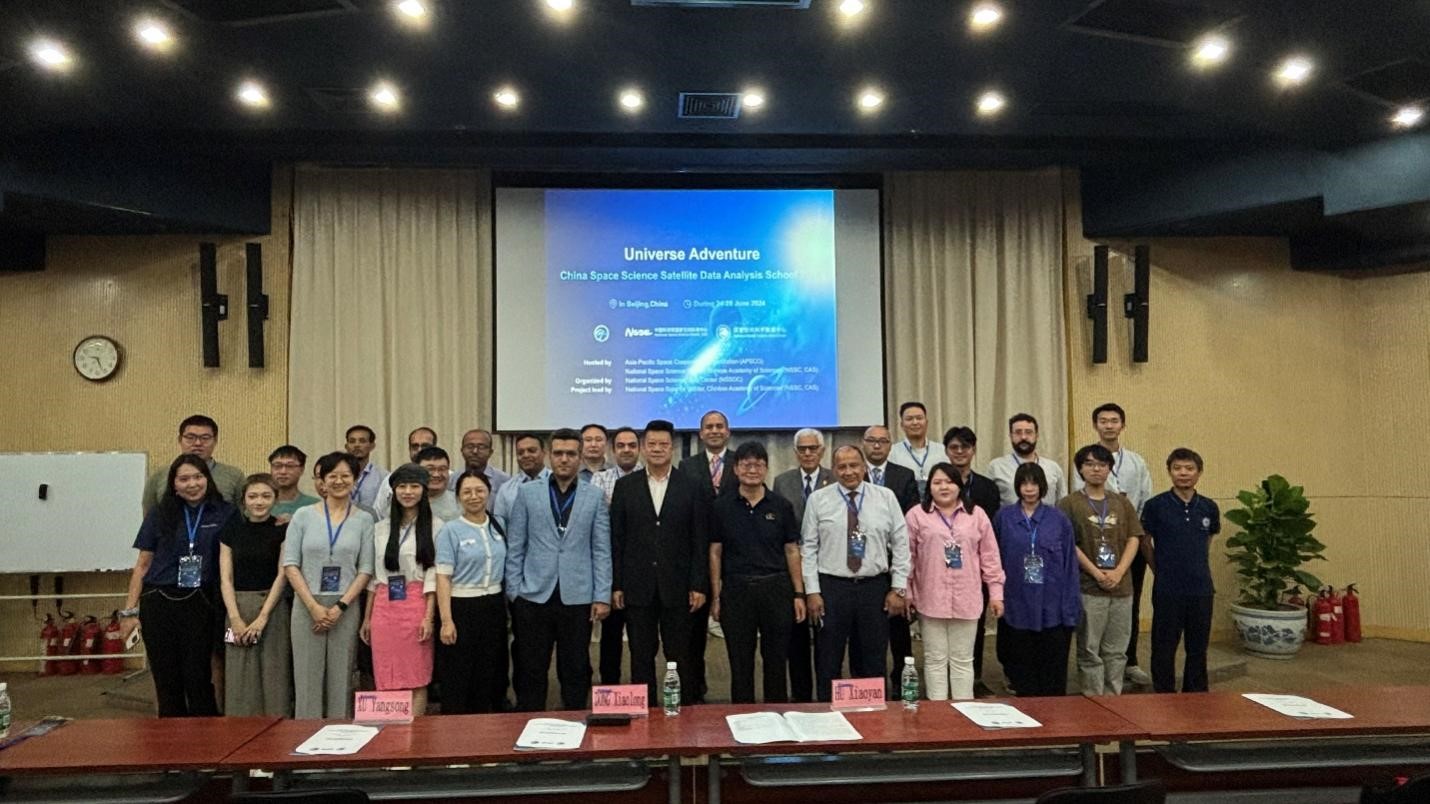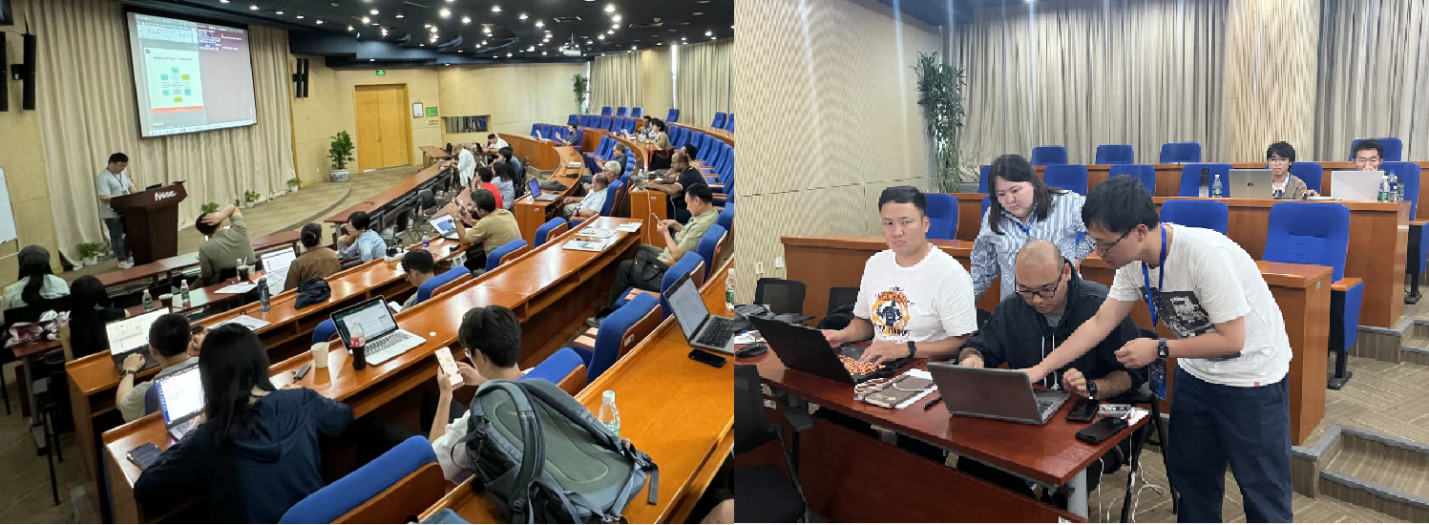Universe Adventure Project Successfully Held in Beijing, Boosting Space Science Data Analysis Skills
The Universe Adventure: China Space Science Satellite Data Analysis School, jointly hosted by the Asia-Pacific Space Cooperation Organization (APSCO) and the National Space Science Center (NSSC) of the Chinese Academy of Sciences (CAS), was successfully held in Beijing on June 24, 2024. The event was organized by the National Space Science Data Center, aiming to facilitate knowledge sharing on astronomy research using China's space science satellites.

The Data Analysis School focused on dark matter photon data analysis, gathering 17 students from APSCO member states. Experts from the dark matter team of Purple Mountain Observatory of CAS served as Supervisors. The program consisted of a five-day on-site training session followed by 55 days of online data analysis and tutorials by a cloud computing platform. Participants were also assigned a project to develop their data analysis skills.
During the on-site training session from June 24 to 28, various topics were covered, including data applications of space science satellite missions, principles of dark matter satellite photon data analysis, open science practices, and hands-on data analysis exercises. PI and scientists from institutions such as the NSSC, National Astronomical Observatories of CAS, and Institute of High Energy Physics of CAS introduced data analysis and application reports from missions like EP, GECAM, HXMT, and GRID. Lectures on understanding the densest cosmic matter in the era of multi-messenger astronomy and the status of dark matter indirect detection were also presented. Experts from dark matter team demonstrated the fundamentals of statistics and principles of data analysis. Additionally, lectures on open science and open data concepts were delivered by teachers from the National Science Library of CAS and the Computer Network Information Center of the CAS.

The Data Analysis School provided a fundamental platform for young researchers from APSCO member states to explore and practice the data analysis and application of Chinese space science satellite missions, and to enhance the basic research capabilities in space science. The five-day on-site sessions sparked significant interests among participants in space science satellite data application. Through discussions and communication, students explored further collaboration and research opportunities in CAS.
In the following 55 days, students continued their analysis online using the cloud computing platform. The dark matter team from the Purple Mountain Observatory provided regular tutorials and answered questions, enabling students to continuously improve their data analysis and application skills.


